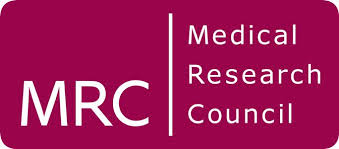
The generalizability of bronchiectasis randomized controlled trials: A multicentre cohort study
Chalmers JD, McDonnell MJ, Rutherford R, Davidson J, Finch S, Crichton M, Dupont L, Hill AT, Fardon TC, De Soyza A, Aliberti S, Goeminne P.
Link to publication page: http://www.sciencedirect.com/science/article/pii/S0954611116300129?via%3Dihub
Journal Ref: Respir Med. 2016 Mar;112:51-8
Abstract:
INTRODUCTION: Randomized controlled trials (RCTs) for bronchiectasis have
experienced difficulties with recruitment and in reaching their efficacy
end-points. To estimate the generalizability of such studies we applied the
eligibility criteria for major RCTs in bronchiectasis to 6 representative
observational European Bronchiectasis cohorts.
METHODS: Inclusion and exclusion criteria from 10 major RCTs were applied in each
cohort. Demographics and outcomes were compared between patients eligible and
ineligible for RCTs.
RESULTS: 1672 patients were included. On average 33.0% were eligible for
macrolide trials, 15.0% were eligible for inhaled antibiotic trials, 15.9% for
the DNAse study and 47.7% were eligible for a study of dry powder mannitol.
Within these groups, some trials were highly selective with only 1-9% of patients
eligible. Eligible patients were generally more severe with higher mortality
during follow-up (mean 17.2 vs 9.0% for macrolide studies, 19.2%% vs 10.7% for
inhaled antibiotic studies), and a higher frequency of exacerbations than
ineligible patients. As up to 93% of patients were ineligible for studies,
however, numerically more deaths and exacerbations occurred in ineligible patient
across studies (mean 56% of deaths occurred in ineligible patients across all
studies).
CONCLUSION: Our data suggest that patients enrolled in RCT's in bronchiectasis
are only partially representative of patients in clinical practice. The majority
of mortality and morbidity in bronchiectasis occurs in patients ineligible for
many current trials.

